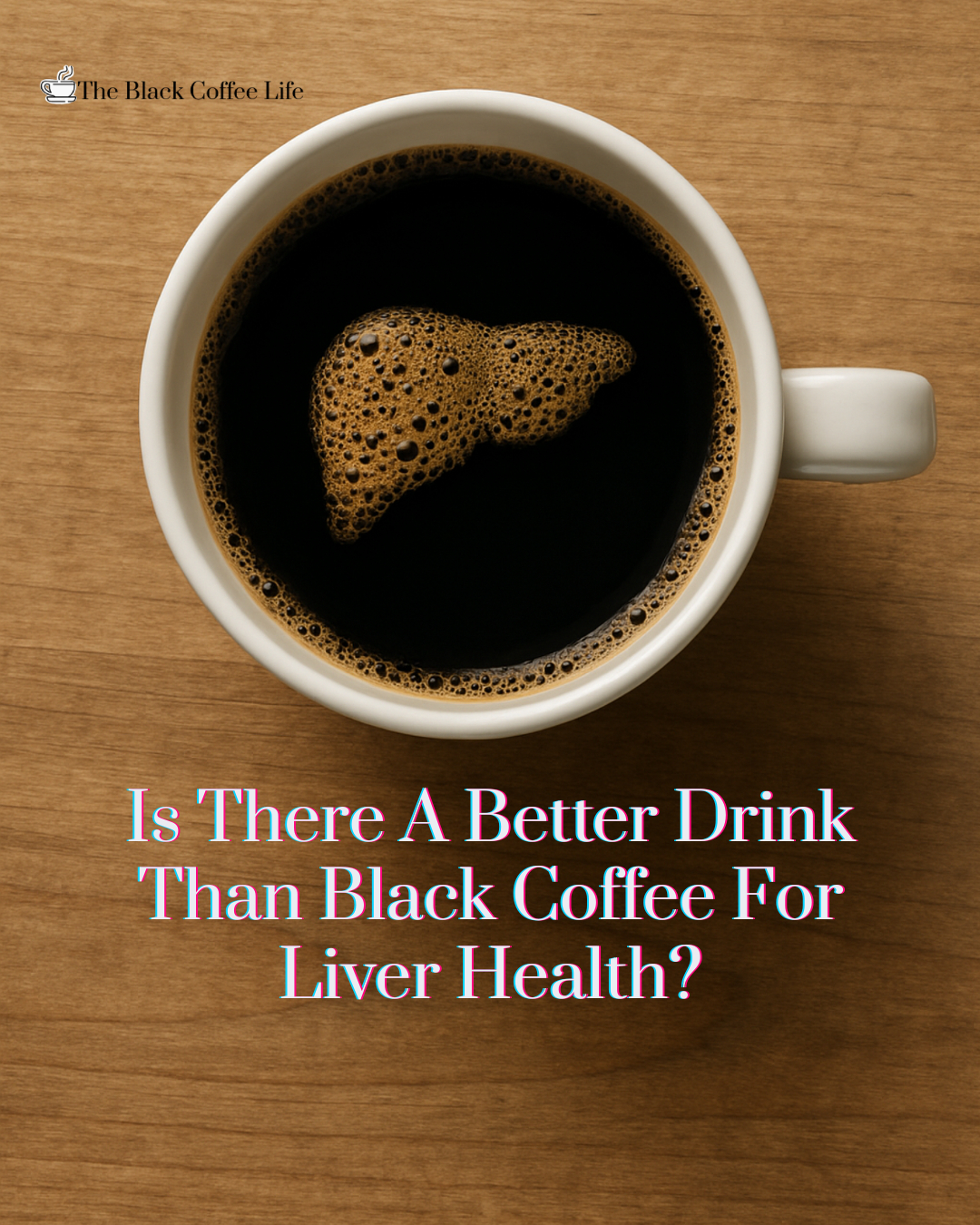
Black coffee is considered one of the best drinks for liver health by many experts. Its benefits include reducing fat buildup, lowering inflammation, and providing antioxidants that protect the liver. Studies have shown regular coffee consumption lowers the risk of serious liver diseases such as cirrhosis and fatty liver disease, and it can improve liver enzyme levels.
But What About….
However, several other drinks have also been studied that may provide significant support for liver health, and some may offer complementary or alternative benefits:
- Green Tea: Rich in antioxidants known as catechins, green tea can help reduce liver fat, inflammation, and risk of liver disease. Evidence suggests drinking green tea daily can be very beneficial for liver function.
- Beetroot Juice: Contains antioxidants called betalains and nitrates that help protect the liver from oxidative damage, reduce inflammation, and promote detoxification enzyme activity.
- Grapefruit Juice: Has flavonoids naringin and naringenin, which are antioxidants and anti-inflammatory agents shown to protect the liver. However, grapefruit juice can interact with certain medications, so consult your doctor before including it regularly.
- Lemon Water: Lemon and ginger water are popular for detoxification and may support healthy liver function, though the clinical evidence is less robust.
- Amla (Indian Gooseberry) Juice: High in vitamin C and supports liver detox enzymes and cholesterol reduction.
- Water: Proper hydration is essential—drinking enough water helps your liver function optimally and flush out toxins.
Which Of Those Drinks Have The Best Clinical Evidence?

Black coffee is supported by the best and most extensive clinical human evidence for improving liver health. Green tea and beetroot juice may be beneficial, but the evidence is less definitive and mainly from limited human studies or animal research.
The strongest clinical evidence for coffee’s protective effect on liver health comes from several large, well-designed cohort studies, meta-analyses, and systematic reviews. Here are the most notable examples:
- Large Prospective Cohort Study (2025): Over 12 years of follow-up, moderate consumption of unsweetened coffee (1.5–3.5 cups/day) was associated with a lower risk of chronic liver disease (CLD) and liver-related events (LREs). This study found a clear U-shaped association: unsweetened coffee lowered risk, while adding sugar or artificial sweeteners increased risk.pubmed.ncbi.nlm.nih
- Systematic Review and Meta-Analysis (2016): An analysis of 20,064 subjects showed that regular coffee intake (not just caffeine in general) was significantly associated with reduced hepatic fibrosis in patients with nonalcoholic fatty liver disease (NAFLD).coffeeandhealth
- Population-Based Prospective Cohort Study (2017, referenced in multiple reviews): Following over 9,800 participants for a median of 19 years, daily coffee intake was associated with a dose-dependent reduction in the risk of death and hospitalization from chronic liver diseases—up to 71% risk reduction for 4 cups/day.pmc.ncbi.nlm.nih
- Findings Across Many Studies: Coffee intake of more than 2 cups per day is associated with lower risk of liver fibrosis, reduced liver enzyme levels, decreased liver cancer rates, and reduced overall mortality in people with chronic liver conditions.
Collectively, these studies provide compelling clinical evidence that moderate, unsweetened coffee consumption is protective for liver health, whether the risk comes from fatty liver disease, viral hepatitis, or other chronic conditions. The consistency of benefit across diverse populations and the dose-response effect make the evidence especially strong.
Green tea and beetroot juice have promising data, mainly from animal models, laboratory studies, and small human trials. Green tea extract shows benefits for liver enzymes and NAFLD, but there are concerns about possible liver damage with high-dose supplements in people with certain genetic profiles. Moderate, dietary intake of green tea is considered safe for most people, yet the scale of evidence doesn’t match that for coffee. Beetroot juice has shown liver enzyme improvements in some small trials, with additional benefits noted in animal studies, but strong, large-scale human studies are lacking and it is not proven to reverse significant liver damage.
Summing Up

Overall black coffee is among the best drinks for liver health, but green tea and beetroot juice are strong contenders with some proven benefits. Combining black coffee with some of these alternatives—if compatible with your health and medication regimen—can offer additional liver support. Always avoid drinks with added sugar and consult your doctor about any dietary changes, especially if you have existing liver conditions or are on medication.